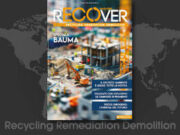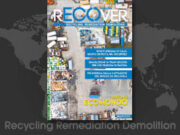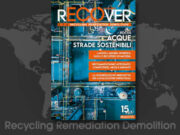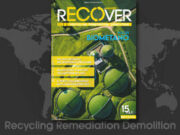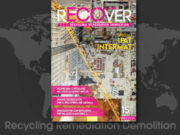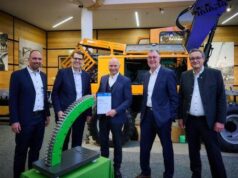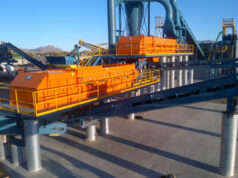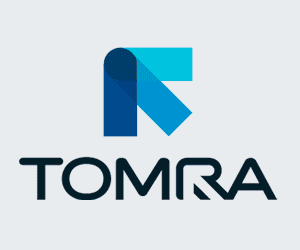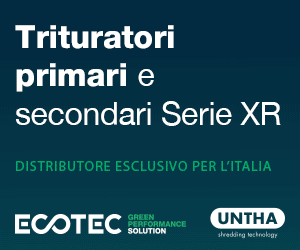
A new report, researched and drafted by Eunomia Research and Consulting, commissioned by Amcor and TOMRA, explores how marker and object recognition sorting technology can contribute to circularity and traceability in plastic packaging recycling in Europe.
Study on recycling of plastic packaging
The report, entitled Advanced Sorting for Circularity, finds that for many plastic packaging formats, further optimisation of existing sorting technologies is likely to be sufficient for improved circularity. For the remaining sorting challenges, object recognition could be the most cost-effective advanced sorting technology to facilitate increased circularity, including when compared to marker technology.
Commissioned by Amcor and TOMRA and other leading industry players, the report is published on Eunomia’s website and is now available to download for free.
The plastic packaging industry is currently facing a growing demand for increased sustainability, particularly in increasing recycled content and fostering a circular economy. This pressure varies across Europe but is predominantly driven by public and governmental demands, leading to brand owners adopting more sustainable practices. EU legislation also enacts requirements around packaging, particularly the anticipated Packaging and Packaging Waste Regulation (PPWR), expected to go into effect later in 2024.
This new report explores how marker and object recognition sorting technologies can contribute to circularity and traceability in plastic packaging recycling, specifically within the EU, Norway, Switzerland, and the UK.
Marker and object recognition sorting technologies
The report’s methodology involves identifying polymers and packaging material formats not adequately sorted by existing technologies for achieving circularity. It then evaluates new technologies (i.e., advanced sorting technologies) that could enable classification and sorting of these post-consumer plastic packaging types. A range of new sensor- and marker-based sorting technologies are also examined. Three are shortlisted for detailed cost and performance modelling: object recognition, chemical markers, and digital watermarks.
The study focuses on sorting solutions that provide a suitable feedstock for mechanical recycling processes, which in turn produces material suitable for packaging manufacturers. This focus is due to the underlying assumption that the potential for circular recycling using mechanical processes should be explored before defaulting to chemical recycling processes.
Findings of the study cover insights into the circularity for rigid and flexible plastic applications, traceability and implementation. These findings provide a clear direction for targeted investment and innovation in sorting technologies, emphasising the importance of aligning technological choices with specific recycling objectives and the unique requirements of different packaging types. As the industry moves towards meeting EU recycled content targets, this nuanced understanding will be essential in guiding efforts towards more effective and sustainable plastic packaging recycling practices.
Analysis results
The analysis concluded that advanced sorting is necessary for only a limited set of issues affecting circularity. For rigid plastics, this pertains to contact sensitive applications in HDPE and PP, where current sorting solutions fall short of achieving circularity. For flexibles, advanced sorting is not necessary for producing recyclate grades but might be required to achieve contact-sensitive grades for mechanical recycling, pending further evidence on performance. As the focus of advanced sorting as modelled is increasing circularity in a waste stream which is already collected and sorted for recycling using existing technologies, implementing advanced sorting in this way will not significantly boost overall recycling rates for either rigid or flexible plastics.
All advanced sorting technologies could offer increased traceability, though it is reasonable to conclude that this would be greater with digital markers than with object recognition. However, traceability would require significantly more investment than is needed to achieve greater circularity and, in the case of markers, it would require far more packages being marked. Whether there is a willingness to pay for increased traceability remains uncertain.
It seems highly likely that object recognition can be (and arguably is being) adopted far more quickly than the marker technologies.
The report concludes that it seems likely that there will be continued adoption of object recognition technologies, and these may offer a more cost-effective solution for circularity. Both the plastics industry and policy developers should consider whether using marker technologies as a mass market solution offers sufficient additional benefits to warrant both the additional cost and the complex implementation process.
Andy Grant, Technical Director and the project’s director at Eunomia said: “With increased interest in marker-based solutions for sorting plastic packaging, the findings of this report should be timely for decision-making across Europe and Member States. This report concludes that the application of advanced sorting technologies is not likely to be necessary to facilitate circular recycling across many packaging formats because existing technology is sufficient. Where advanced sorting is necessary, we already see some examples; in some rigid plastics formats, object recognition is already delivering tangible results. In flexible formats, further work is needed to determine which of the advanced formats may be necessary.”
Eunomia
Eunomia, is driven by the power of unwasted. Its team consists of social-environmental problem-solvers and researchers with a difference. Combining real world consulting experience and deep knowledge with an active role in policy, empowers its team to provide pragmatic, science-led solutions that reduce human impact on the planet. As the leading experts in the field for nearly 25 years, its role is to challenge the status quo. The incomparable expertise means they ask the right questions and dare to go where others won’t. Eunomia get to the heart of the real issues impacting clients’ businesses and impacting society.
Eunomia specializes in sustainable material use and reuse, recycling, and waste management strategies, assisting businesses, governments and NGOs from policy evaluation to product responsibility. Aiming for a net-zero future, Eunomia measures and reduces carbon footprints, guides through carbon offset markets, and ensures alignment with global sustainability standards. Eunomia offers solutions for biodiversity enhancement, sustainable land use, and nature-based investment strategies, focusing on ecological balance and economic viability.
Eunomia is a certified B-Corp business, globally. With 150+ employees across 5 offices, spanning three continents. The leadership team is 50:50 female:male split.
TOMRA
TOMRA is a global leader in solutions for transforming how we obtain, use and reuse the planet’s resources. With an ultimate mission of realizing a world without waste, TOMRA develops systems for enabling the circular economy, specializing in resource collection, recovery and sorting for recycling and mining applications, and sensor-based food sorting and grading.
Founded in 1972, TOMRA now has approximately 105,000 installations in over 100 markets worldwide and had total revenues of approximately 14.8 billion NOK in 2023. TOMRA’s geographic footprint covers all continents, providing novel solutions for businesses and communities to operate more profitably and sustainably. TOMRA is headquartered in Asker, Norway and is listed on the Oslo Stock Exchange (TOM).
















